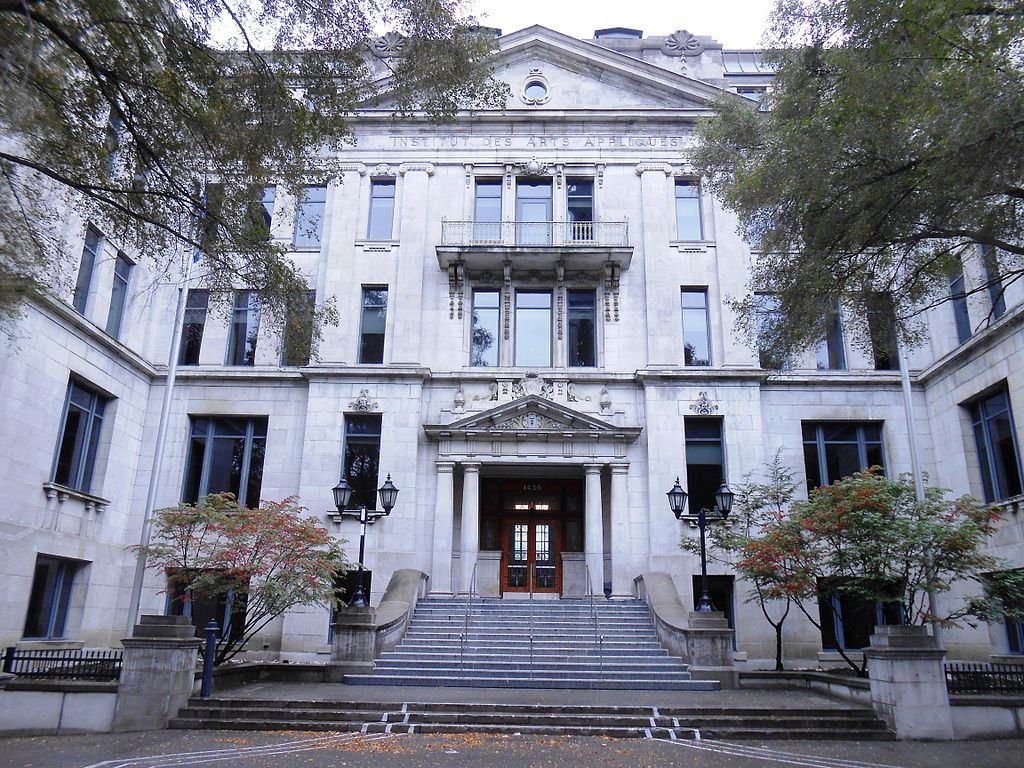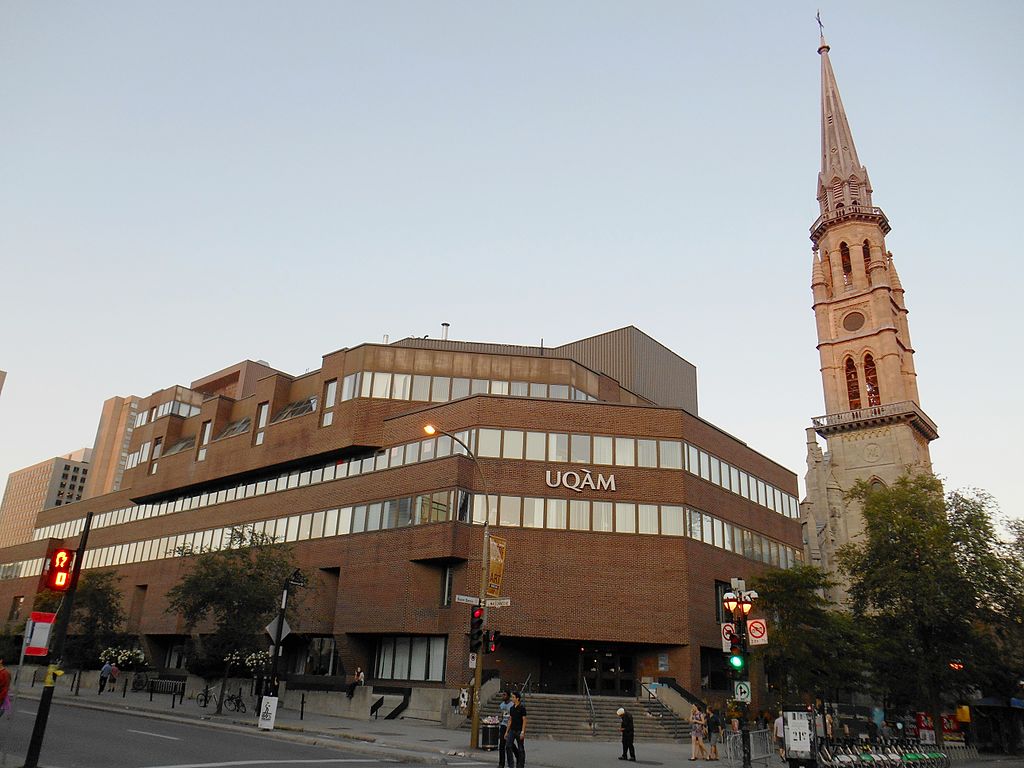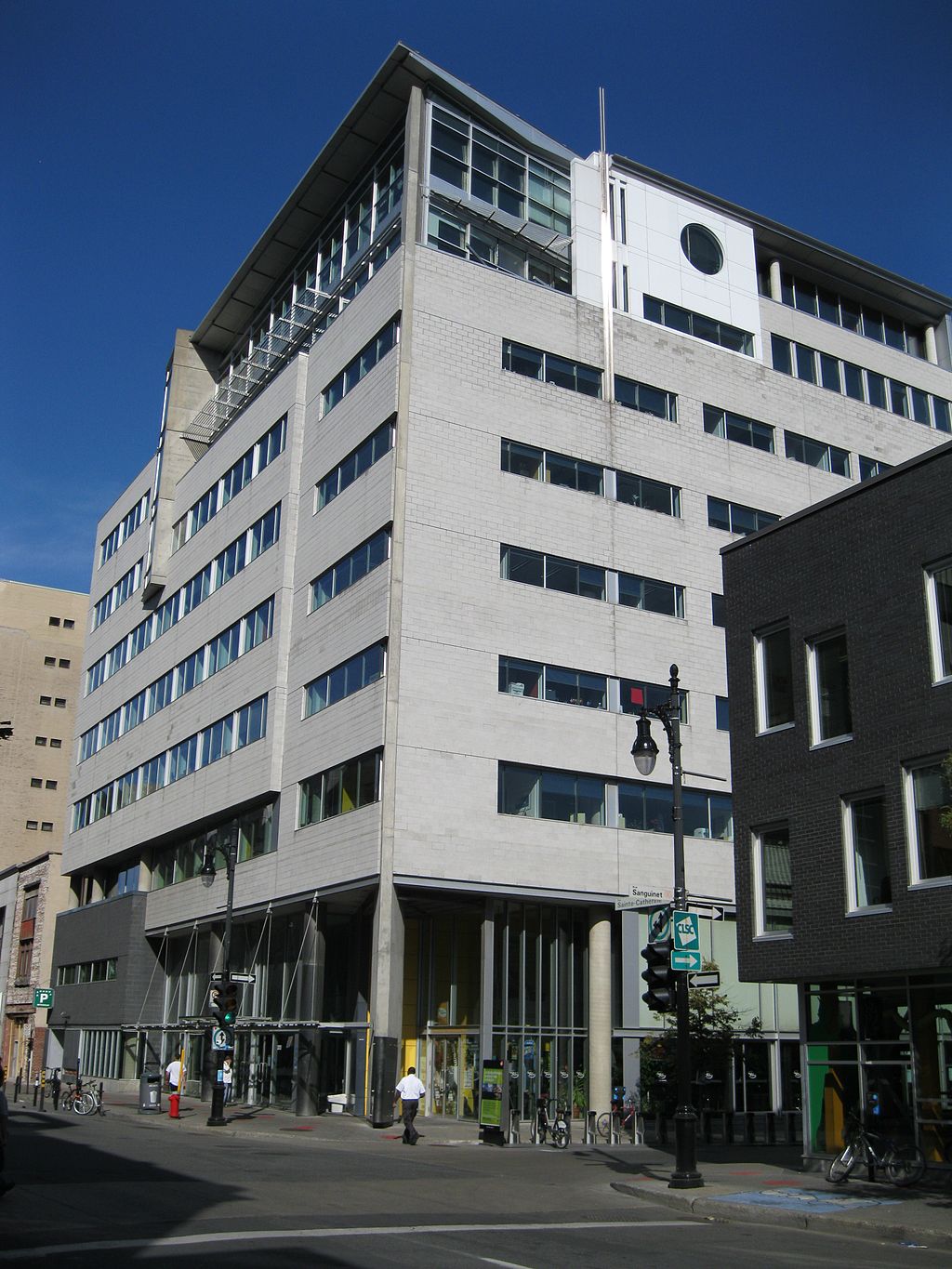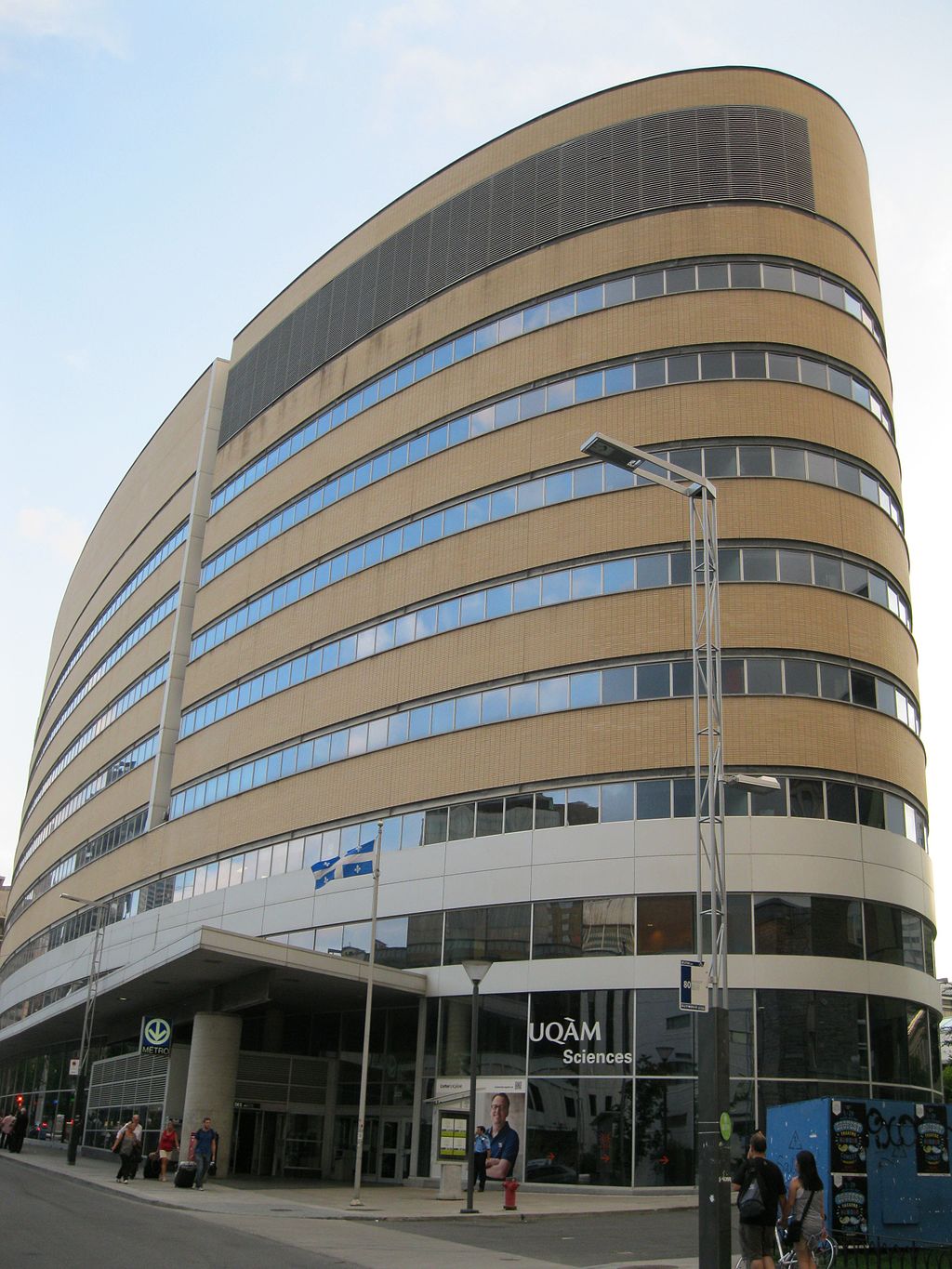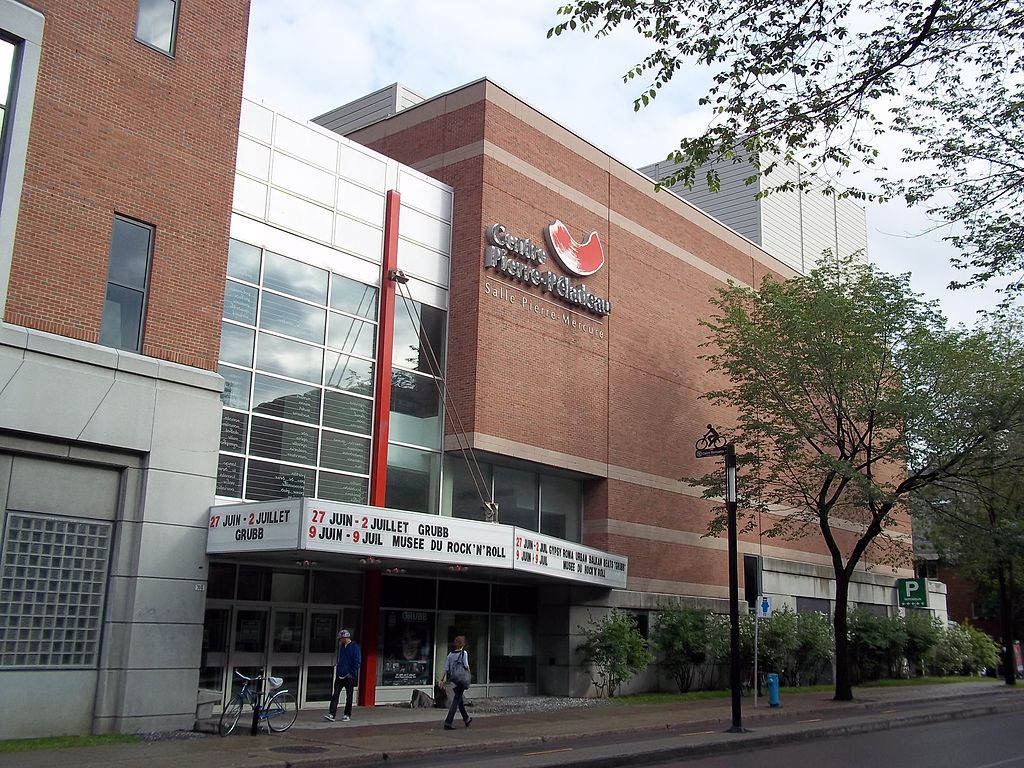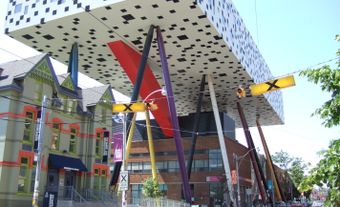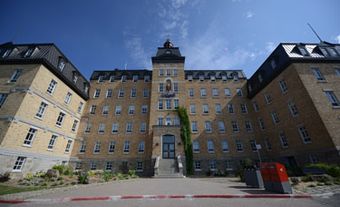Université du Québec à Montréal (UQAM) is a French-language university located in the heart of Montréal. Comprehensive, secular, and public, it was founded in response to education reforms during the Quiet Revolution and reflects a desire to democratize access to universities. It was the first such institution created by the Government of Québec within the Université du Québec (UQ) system, Canada’s only public university network.
Founding and Background
Founded on 9 April 1969 by the Government of Québec within the Université du Québec network, UQAM’s primary mission is to promote access to university studies for francophones, women and adults (see also Educational Opportunity).
A public institution that merged five original schools (including Collège Sainte-Marie, École des beaux-arts de Montréal and École normale Jacques-Cartier), UQAM has a campus in downtown Montréal with two main locations. The central campus is located in the Latin Quarter, and its buildings provide indoor access to the Berri-UQAM metro station. The Pierre-Dansereau Science Complex is in the heart of the Quartier des spectacles and can be accessed via the Place-des-Arts metro station.
In 1989, a legislative amendment gave UQAM “associated university” status within the Université du Québec, with the power to award diplomas, sign cooperation agreements and recommend rector nominations directly to the government.
Programs
The UQAM faculties, schools, institutes and departments offer numerous fields of study: Arts; Communication; Education; Political Science and Law; Sciences; Management; Social Sciences; Health; and Sustainable Development. UQAM has over 1,000 tenured professors and twice as many sessional lecturers. As of 1 November 2014, UQAM welcomed nearly 44,000 students ― 35,429 undergraduates and 6,866 graduate students ― to over 300 programs of study (including 115 master’s and 30 doctoral programs). Between 1969 and 2015, UQAM awarded diplomas to 233,911 people.
The university’s research activities take place in 34 research centres, 62 chairs (including 26 Canada Research Chairs, 25 Research Chairs in Innovation, 4 NSERC Industrial Research Chairs, 3 UQAM Strategic Chairs and 4 UNESCO Chairs), 6 institutes (Montreal Institute of International Studies, Heritage Institute, Institute of Environmental Sciences, Institute of Feminist Research and Studies, Institute of Cognitive Sciences, Health and Society Institute), and 40 departments and schools.
Influence
Since it was founded, UQAM has innovated in a number of areas. It made part-time studies possible in all its programs, and it developed programs for people in the job market. It helped pave the way for emerging knowledge sectors such as environmental sciences, meteorology, communications, semiology, tourism, sexology, information management, and dance.
UQAM promotes cooperation between universities, with many of its master’s and doctoral programs offered jointly with other universities. It collaborates with multiple inter-university research centres and with universities across five continents. To facilitate these exchanges, UQAM manages some 600 bilateral and multilateral agreements with more than 300 partners, in approximately 100 fields, in training as much as in research and creation.
It also has a mission to provide services to communities, which it carries out by providing training and research resources to social groups (such as community organizations and unions) that traditionally have limited access to university services. Many of its research chairs are the result of partnerships with private or public businesses or cooperatives.
See also Music at Université du Québec.

 Share on Facebook
Share on Facebook Share on X
Share on X Share by Email
Share by Email Share on Google Classroom
Share on Google Classroom
